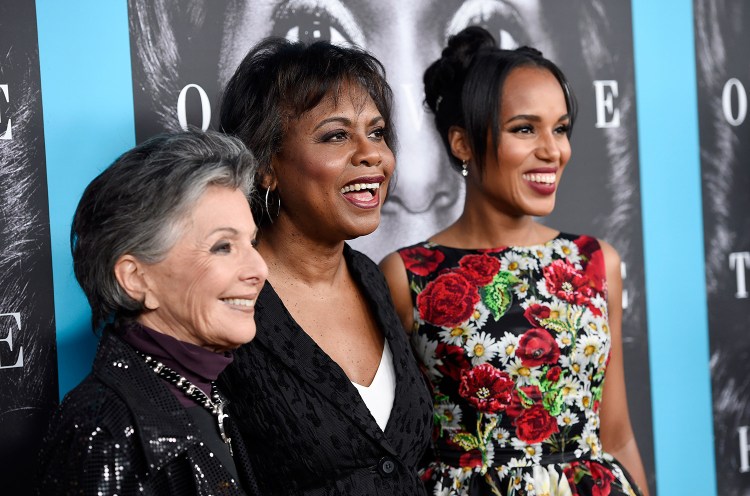WELLS — No crying in baseball? How about politics? I recently cried for political reasons. My tears were not directly triggered by the realization of Donald Trump as president. The trigger was the documentary “Anita: Speaking Truth to Power,” focusing on Anita Hill’s role in the contentious 1991 confirmation of Clarence Thomas as an associate justice of the U.S. Supreme Court. What brought me to tears was several young women’s beautiful and meaningful spoken-word tribute to Hill that accompanies the documentary.
The last time I cried for political reasons was in 1972, when incumbent Richard Nixon trounced Sen. George McGovern in the presidential election. I had worked diligently for McGovern. I remember the morning after that election, despondently driving to Nasson College in Springvale, where I was teaching. Gordon Lightfoot’s “If You Could Read My Mind” came on my car radio, and the line “the feeling’s gone and I just can’t get it back” was far too much for me. I pulled over and tears of sadness came.
I have never completely regained that 1972 feeling of youthful political optimism, nor have I ever again experienced the jading pain of losing it. That rare feeling, not unlike the sentiments visited in recalling one’s first love, can be encountered only once, if ever.
Still, in the wake of Trump’s victory, viewing the “Anita” documentary helped lift my spirits. My hope is that seeing the film might do the same for many who are disheartened by Trump’s ascendancy. Sometimes, good is hidden in the bad. Indeed, there were latent positive results concealed in Hill’s unsuccessful struggle against Thomas’ confirmation.
I prepared a paper, “Pyrrhic Politics: President Bush and the Nomination of Clarence Thomas,” for an academic symposium on the Bush presidency at Hofstra University in 1997. At that conference, former Bush White House Chief of Staff John Sununu, one-time Bush White House counsel Boyden Gray III and then-conservative attack dog David Brock all openly denounced the paper.
Nevertheless, the paper and critiques were subsequently published in the 2002 anthology “Honor and Loyalty: Inside the Politics of the George H.W. Bush White House.” Though that book is titled “Honor and Loyalty,” my chapter notes Bush’s fierce “loyalty” to Thomas but says nothing of the president’s “honor.” Instead, the piece strongly criticizes Bush for ordering an unrestrained attack not only on Hill’s testimony but also on her motives and character.
And good from bad? “Pyrrhic Politics” makes a case that Bush, not unlike King Pyrrhus, suffered a devastating defeat in gaining a costly victory. Bush won the battle, Thomas’ confirmation, but lost the war, the 1992 election.
Bush’s critical role in the Thomas deliberations helped create the significant “gender gap” in the 1992 race with Bill Clinton that likely cost Bush the presidency. Many women, alienated by President Bush’s behind-the-scenes orchestration of the Senate’s brutal treatment of Professor Hill during the Thomas deliberations, would subsequently cast critical votes against Bush in the 1992 election. For one example of several noted in the article, Bush received only 45 percent of the female vote in 1992. This compared quite unfavorably to his own performance in 1988, when he won 50 percent of the votes of women.
Additionally, the lasting legacy of Hill’s courageous anti-Thomas testimony brought the issue of sexual harassment to the attention of the American people, never again to be ignored. One doubts such a result was one sought by the Bush White House in tapping Thomas for the Supreme Court. Good from bad.
My joyful tears in watching the documentary had much to do with my realization of joining with Hill in speaking truth to power at Hofstra. That feeling was one of being on the right side and, if you will, the moral side, of history. It is that warm, rewarding, optimistic feeling I want to bring to the attention of those frustrated, confused and disheartened by Trump’s present empowerment.
We often find ourselves adrift in a world in which our personal actions are so easily stymied or even cruelly reversed by the vagaries and randomness of life.
The world can be a hostile place, but we must continue, against all absurdity and randomness, to try and shape it into a more hospitable and loving place. Our actions might have no impact at all. Then again, the impact of our actions might only be delayed – and lasting.
Send questions/comments to the editors.



Comments are no longer available on this story